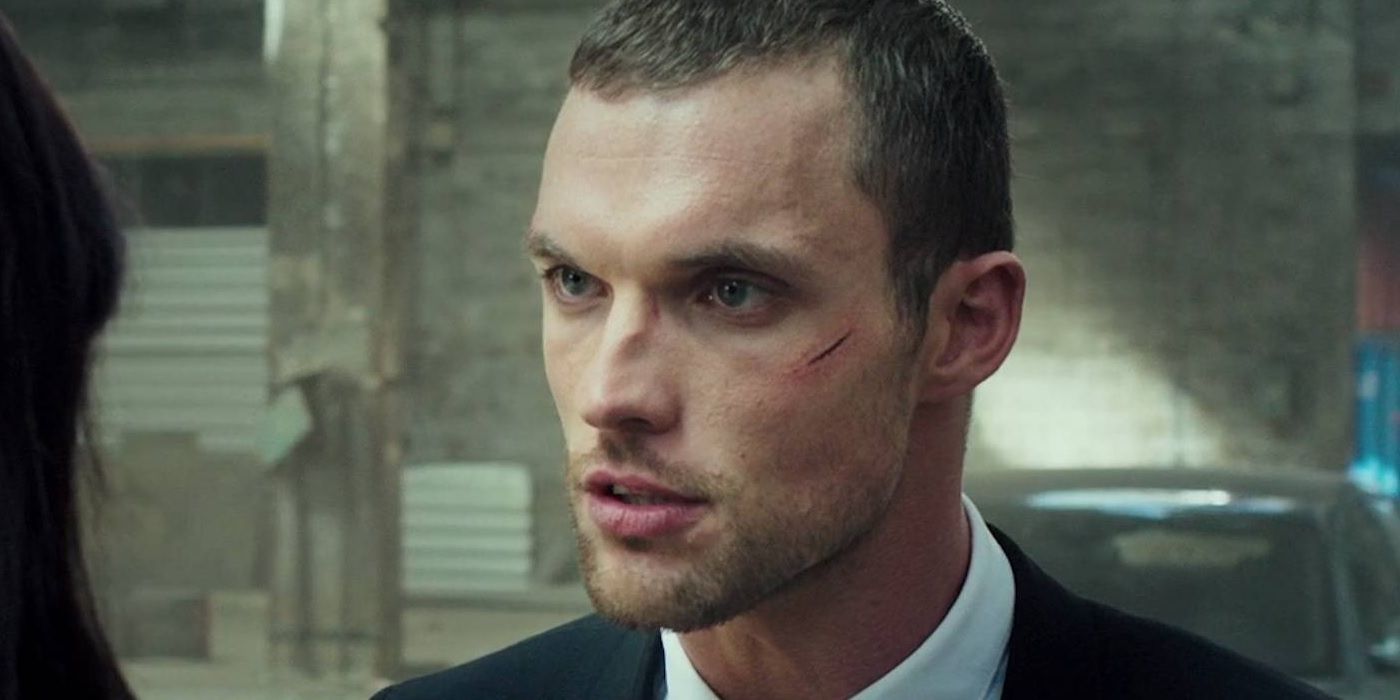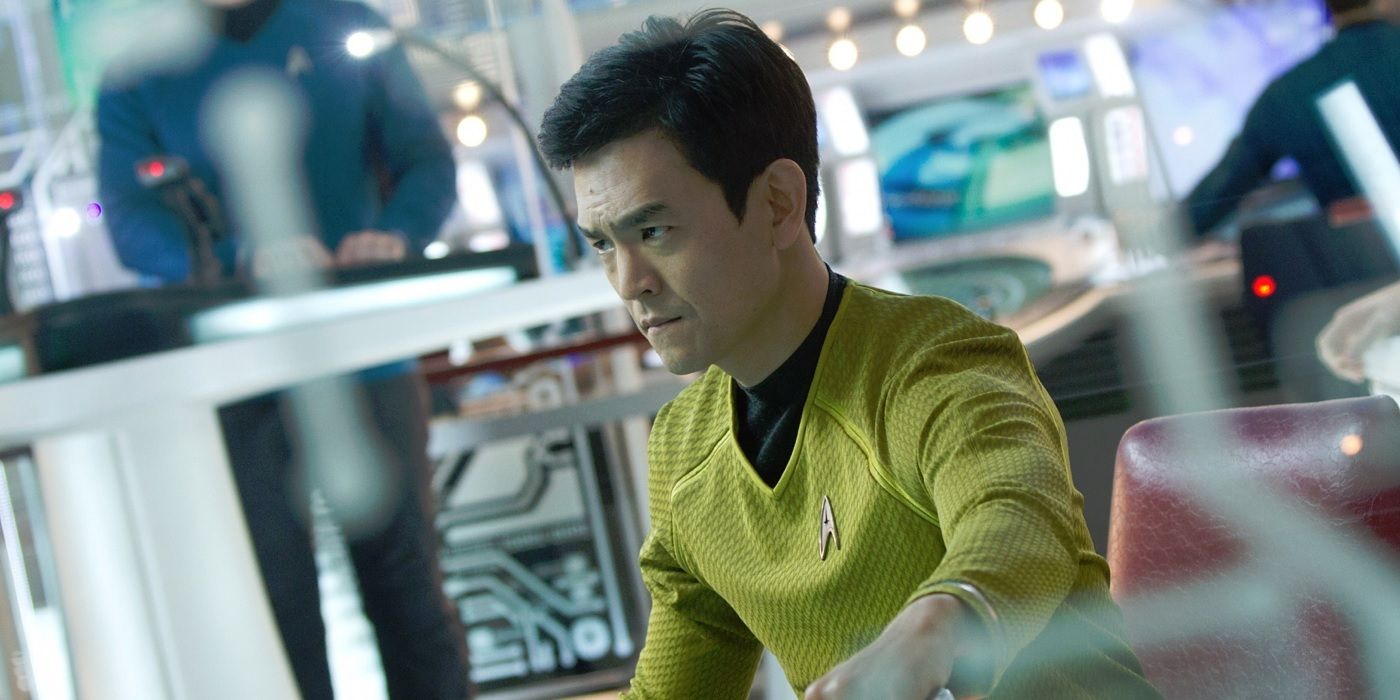Whitewashing has a long history in Hollywood. During the early days of the film industry, the Hays Code, implemented in the 1930s, prevented interracial kissing on-screen, on the basis that such a sight was indecent. Therefore, in the rare cases where roles were available for actors of color, the need for them would be removed and excused in part through the need to adhere to the code. This infamously happened with the adaptation of Pearl S. Buck's novel The Good Earth, a drama about a Chinese family's life in the lead up to World War 1. Anna May Wong, the most prominent Asian actress of the era, desperately wanted the lead in the movie, but was told that, since the white actor Paul Muni had been cast as the protagonist's husband, she was unsuitable for the role. Luise Rainer, who was ultimately cast, won the Best Actress Oscar for her work.
Nowadays the industry doesn't tend to delve into full blown yellow-face, but it still treats the whitewashing of Asian roles and characters as a necessity of doing business. That's why so few people were surprised when Ed Skrein was announced as the latest cast member of the Hellboy reboot in the role of Ben Daimio. Daimio, a prominent figure in Mike Mignola's comic books, is a Japanese American member of the B.P.R.D. born into a military family. Hearing that Skrein, best known for playing Daario Naharis in Season 3 of Game of Thrones, would play the role was another disheartening reminder of how the industry viewed Asian American and Pacific Islander (AAPI) representation. The backlash was intense, but the fact that so few people were genuinely surprised by the casting speaks volumes.
Then something interesting happened. Ed Skrein pulled out of the role and wrote a strong, detailed statement explaining his decision. He noted that he would be withdrawing from the film "so the role can be cast appropriately", and that "it is clear that representing this character in a culturally accurate way holds significance for people, and that to neglect this responsibility would continue a worrying tendency to obscure ethnic minority stories and voices in the Arts."
Skrein's decision was met with wide acclaim and support, particularly from AAPI actors like Star Trek's John Cho and Chloe Bennet from Agents of S.H.I.E.L.D., who has talked openly of her struggles to be cast in Hollywood when she worked under her birth name of Chloe Wang. This was probably a decision that weighed heavily on Skrein - dropping out of a prominent project that would be good for his career would be one his agent may have had some feelings on - and the chances are if he had stayed in that role that the industry would have been fine with that. Yet Skrein made a tough call that was ultimately the right one, and it's won him a legion of new fans.
It has also thrown down the gauntlet - not only to the film industry, but specifically to the producers of Hellboy: There's no excuse not to cast the role of Ben Daimio properly. His statement feels all the sharper given the Twitter comments of one of Hellboy's producers, Christa Campbell, who defended Skrein's initial casting by claiming œwe are all one. We don't see colors or race.
This fantastical claim of a color-blind meritocracy in Hollywood rears its ugly head frequently when whitewashing takes place. The assumption with this train of thought is that talent will win above all else, despite what the statistics say, and it's just a coincidence that the right choice always happens to be a white actor. No excuse is ever given for the implication that white people are somehow more experienced and talented to play characters rooted in Asian experiences. When Allison Ng talks proudly of her Chinese and Hawaiian heritage in Aloha, it never rings true because those words are coming from the mouth of the very white Emma Stone.
Whitewashing is made all the more frustrating by the other excuse used to deny Asian actors their opportunity the claim that there just aren't any major actors of Asian descent working who could carry a major blockbuster. That's one of the myriad of excuses used to defend Scarlett Johansson's casting in the live-action adaptation of Ghost in the Shell. Thus, a Catch-22 situation is created, one that deliberately denies access to power: You need a major star to open a big project, but there are no major stars because the scant opportunities available are given almost exclusively to white people.
The old excuses are quickly falling apart, as savvier and more diverse audiences choose to protest whitewashing with their wallets. Aloha and Ghost in the Shell both flopped. The latter made back a paltry $169.8m at the box office from a $110m budget, and even its studio Paramount admitted that the backlash to the whitewashing had hurt its profits. Johansson's supposed worldwide appeal did not lead to a successful film, even in the Asian market were so much of Hollywood's hopes of profit lie. These whitewashed projects have also been on the receiving end of a fair few critical slams, including Netflix's recent remake of the anime Death Note, an adaptation that seeped the story of its cultural specificity and became a less interesting film as a result. Whitewashing isn't just ethically wrong; it leads to bad storytelling.
Studios can bemoan the force of social media ire all they want, but audiences' refusal to accept a racially driven status quo signals something they should pay attention to: Diversity sells. Films with inclusive casting have made big money at the box office this year: Girls Trip soared past $100m, the Fast and Furious franchise remains one of the industry's biggest power players, and Get Out became the most profitable film of the year so far. Audiences are hungry for change, and with 2016 figures showing that Asian-Americans were the biggest demographic of film-goers last year, it would be foolish not to offer that audience something they're hungering to see.
Ben Daimio is a fascinating character, and he offers an exciting chance for a Japanese actor to make an impact in a big-budget Hollywood superhero film. The industry needs to create these opportunities for AAPI actors, because right now there are countless amazing Asian actors who aren't getting the chance to shine like their white counterparts. John Cho is wonderful as Sulu but he's also prime leading man material who's never had a real outlet to demonstrate that; In a just world, Randall Park and Constance Wu from ABC's comedy Fresh Off the Boat would be major stars; Many Ghost in the Shell fans imagined Oscar nominee Rinko Kikuchi in the lead role, and you wonder why Hollywood hasn't offered her more chances.
Lionsgate have since promised to recast the role "with an actor more consistent with the character in the source material." One would hope that they wouldn't be foolish enough to go back on that pledge, especially now that the world's eyes are on them. Ed Skrein may never have said the word "whitewashing" in his statement, but his intent was clear, and the precedent he has set for actors and studios alike is a tremendous achievement. Now, there are no excuses for white actors of any level of fame to take on a whitewashed role. Producers may assume that general audiences would prefer a prominent white name over an unknown Asian one, but Skrein's decision has proven the exact opposite. The opportunity is there for Hollywood to use Hellboy as a tipping point for change, and a key moment of understanding on the hurt whitewashing creates. Here's hoping they listen to audiences cheering on Ed Skrein right now and do the right thing for Ben Daimio.




